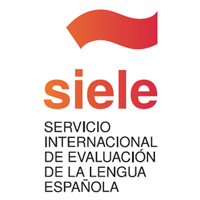At Hablamos, a Spanish school for foreigners in Madrid, we often get asked this question: Is it better to take an immersive course to improve my Spanish? Or will I get the same results if I study in an extensive course or even online? This can be a complex question to answer because the reality is that it depends!
Sometimes, people have the impression that immersion guarantees progress, but learning from an immersion experience can be harder than you think. It’s not for everyone!
There are certainly many benefits to immersion, but it can also be difficult for reasons that have less to do with the language and more to do with how we behave as people.
Basic requirements for learning: need and exposure
Exposure to the language and the need to communicate with it are essential ingredients for learning a new language. If you are exposed to a language but never need to use it, you won’t really learn it, and if you need the language but don’t get enough exposure, you also won’t have much success.
Therefore, it’s logical to think that the best way to learn Spanish is to enrol in an intensive Spanish course in a country where only Spanish is spoken. The exposure and the need will be total, but the level of intensity can be overwhelming.
Why immersion can be a challenge
To start with, most of us can’t leave our lives at home and have a long-term immersive experience, unfortunately. But there are other reasons as well, and it’s important to know them if you’ve decided to enrol in an intensive Spanish course in Spain.
A significant challenge of immersion is obtaining the right kind of exposure. In immersion settings like travelling, studying or working abroad, you interact with locals at their level, and people won’t always know how to tailor their language in the ways you need as a learner. Most native Spanish speakers don’t have a good sense of what learners study and when, what counts as advanced grammar versus what is taught early on. And it’s logical! They didn’t learn it in a classroom!
It’s also important to note that it’s surprisingly easy to get through the day without saying much. It turns out you can take public transportation, buy food in the grocery store, and even order by pointing to a pastry in the bakery, all without uttering a word. That’s not to say that you couldn’t strike up a conversation with someone in those settings (you can!), but for many learners, it’s really hard to take that kind of risk. Additionally, talking to strangers can have different cultural rules in different places, making their reactions a bit unpredictable.
Day-to-day immersion can be often challenging and exhausting, even for the most motivated learner. Feeling like an outsider can be uncomfortable, which makes it tempting to avoid the very speaking opportunities you were seeking when you decided to immerse yourself in the first place. When students study abroad, they tend to stick together, whether they are from the same university back home or part of a larger international programme. Often, in groups of people with mixed language backgrounds and different proficiencies in the community language, English becomes the default lingua franca. It takes a lot of effort to rely on a new, weaker language if there’s an alternative language that everyone in the group knows better.
Why immersion can be great
The challenges of immersion should be considered seriously, but of course, it can also be a valuable opportunity.
Being immersed in the Spanish language and culture gives you the opportunity for lots of exposure to speakers of the language, so you can hear the language they use and observe how they use it for different communication purposes. If you can muster the courage to chat with locals, you will create the need and exposure that will, over time, propel your language skills.
Combining immersive settings with good, planned instruction, which is what you’ll get in the classes at Hablamos, can give you the best of both worlds: immersive exposure to the language as used by locals, plus carefully crafted lessons that help you organise and optimise your learning.
Hablamos: Spanish Immersion School
All this to say that immersion is not necessarily the “best” or “fastest” way to learn a language. It’s just one of many ways to support your language learning! But if you are determined to study Spanish through immersion, Hablamos will accompany you throughout the process.
Being a school accredited by the Instituto Cervantes not only guarantees the quality of its teaching but also makes obtaining a visa easier.
With a privileged location in the heart of Madrid, Hablamos offers an authentic and stimulating environment for learning. Its native teachers, highly qualified, use dynamic methods that combine theoretical and practical classes with cultural activities. Additionally, Hablamos organises excursions and social events that allow students to practise the language in real contexts, facilitating complete immersion in Spanish culture. With Hablamos, you will not only learn Spanish effectively but also enjoy a rich and unique experience in Madrid.
Start by taking your free level test and request more information about our immersion programme. We will be delighted to find the itinerary that best suits your level, goals, and availability.
We look forward to seeing you!





